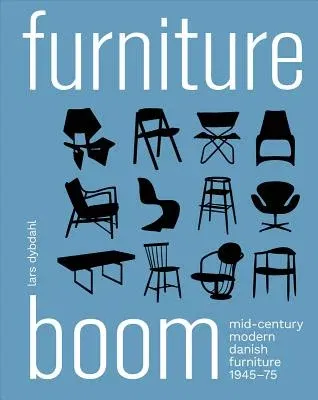This hefty book offers the last word on the Danish Mid-Century Modern
look
Danish design is central to what has come to be known as the mid-century
modern style; its iconic pieces are still considered classics and
continue to inspire designers all over the world. But if pieces like
Hans J. Wegner's Y Chair (1950) and Finn Juhl's Chieftain Chair (1949)
carry an aura of timeless elegance now, they were born of a specific
historical context.
In a new postwar welfare society, the demand for new kinds of furniture
for new kinds of homes, workplaces and public institutions was booming.
Danish furniture designers, cabinetmakers and industrial furniture
factories were ready to deliver, with figures like Wegner, Juhl, Arne
Jacobsen, Børge Mogensen, Poul Kjærholm and Verner Panton each
contributing their own unique vision of what postwar modernity would
look like.
Furniture Boom: Mid-Century Modern Danish Furniture 1945-1975 offers a
comprehensive overview of the style that changed the world. Design
historian Lars Dybdahl tells the story of the movement from beginning to
end, describing and analyzing particular iconic pieces and situating
them within their historical and cultural context.
Thirteen lavishly illustrated chapters explore the period's new interior
trends and production possibilities and highlight the diversity of
Danish design in this period: from spindle constructions and laminated
materials to wickerwork and nomadic furniture; from children's furniture
to storage solutions and office furniture; from the warm look of wood to
cool steel, intensely colorful plastic chairs and sensuous lounge
furniture. Furniture Boom is a design bible of the golden age of
Danish furniture design, an essential resource for professionals and
more casual admirers alike.

